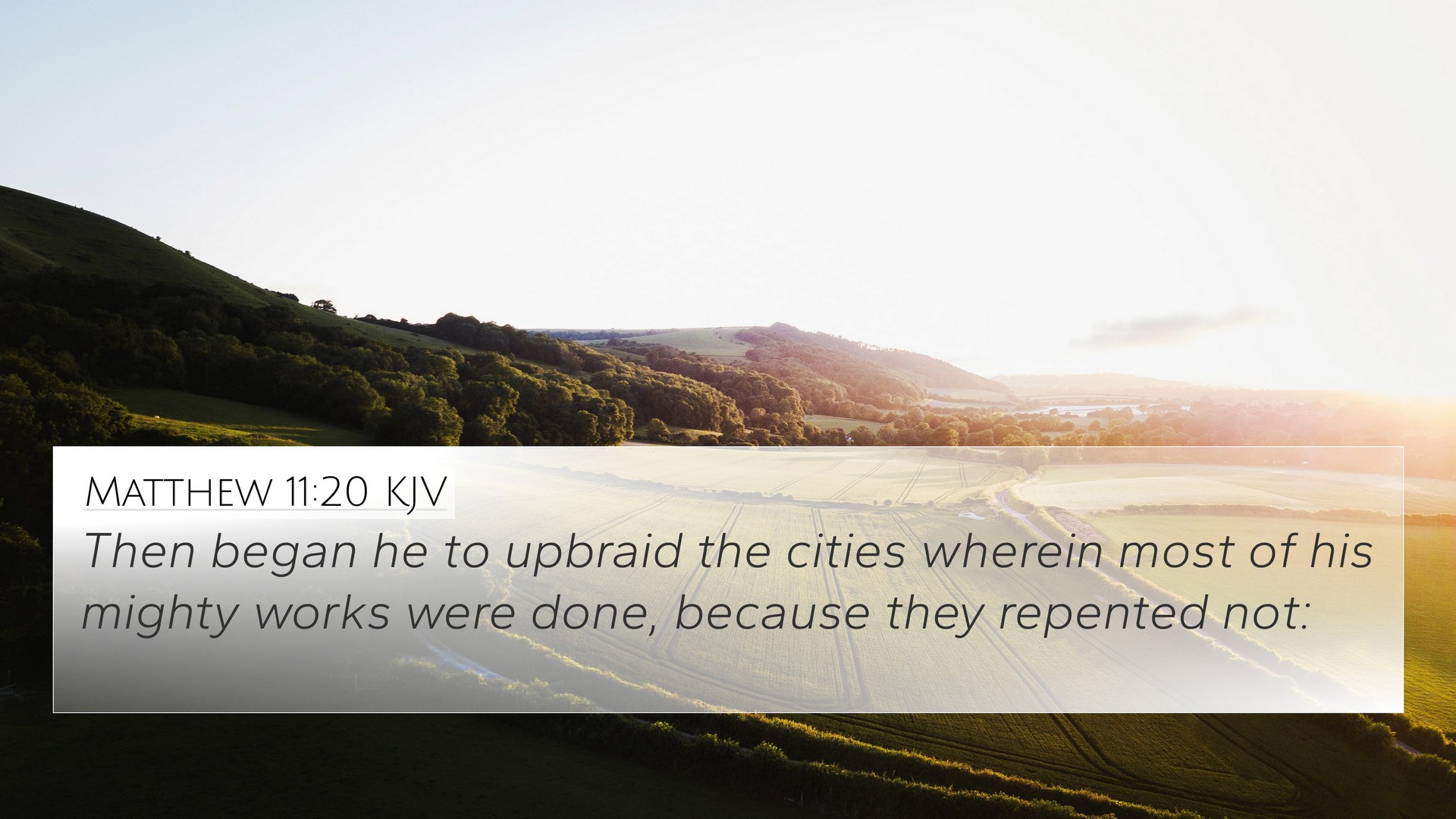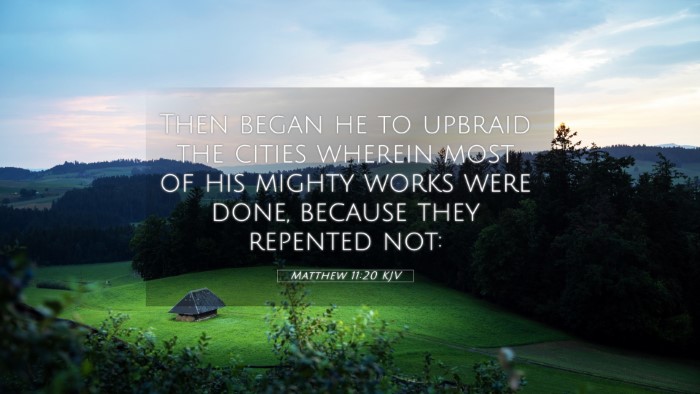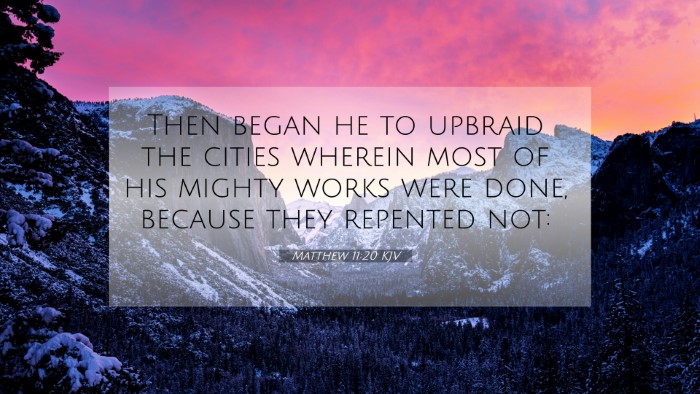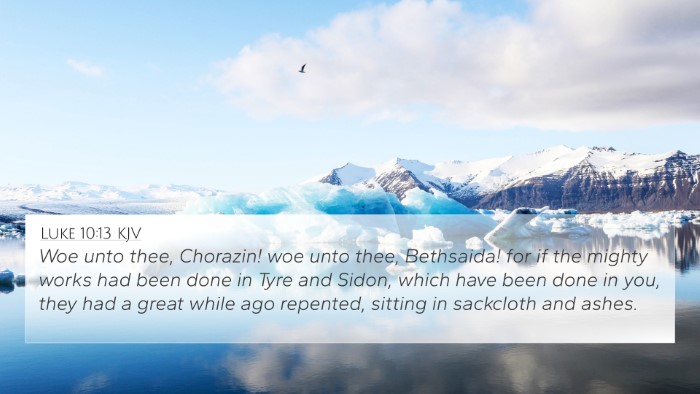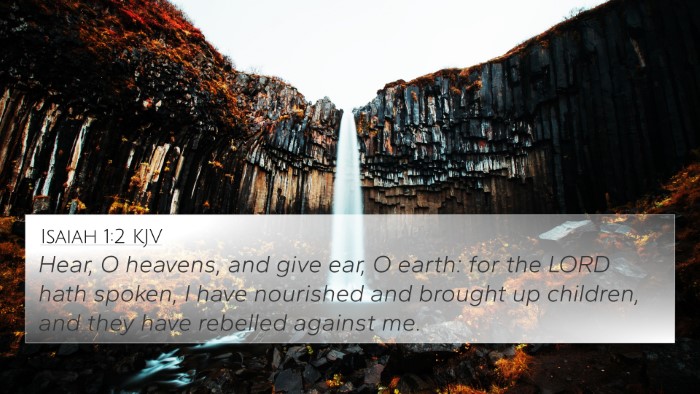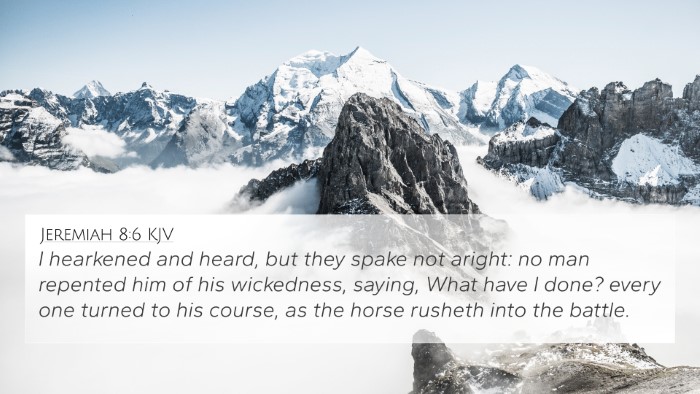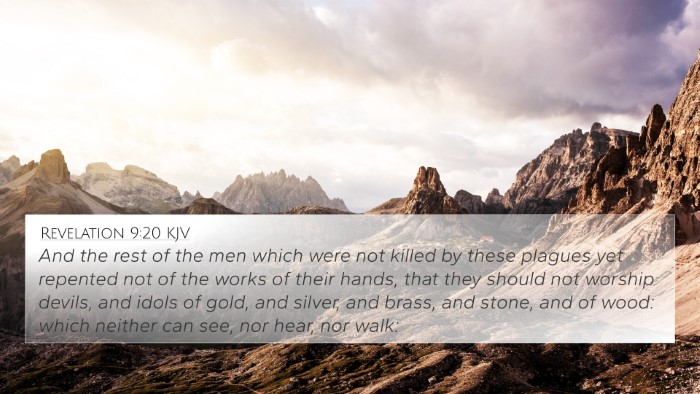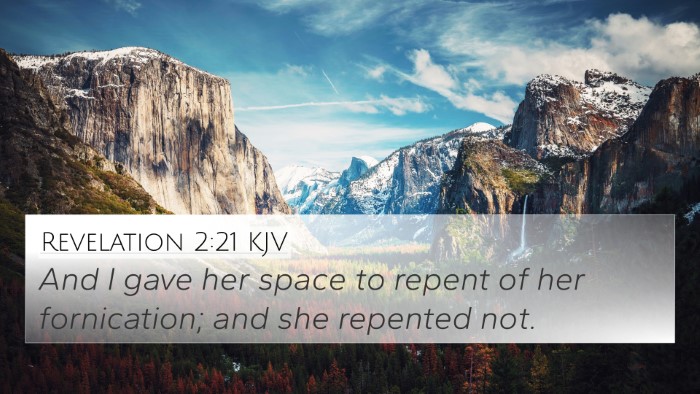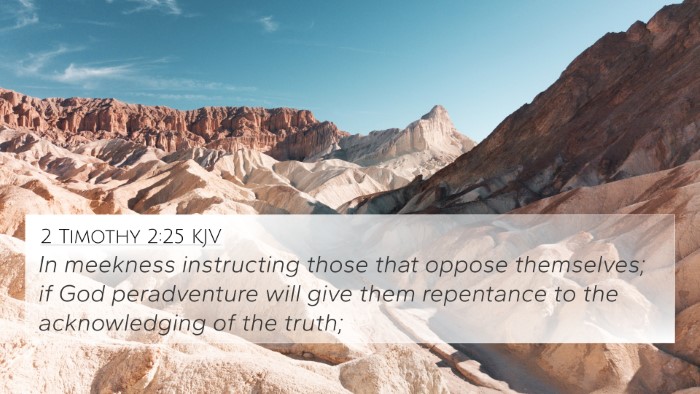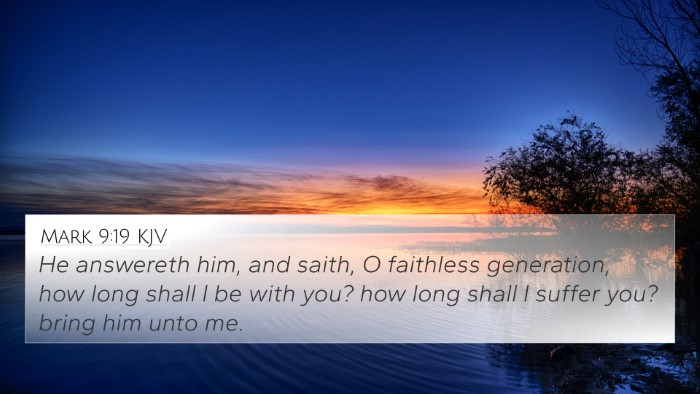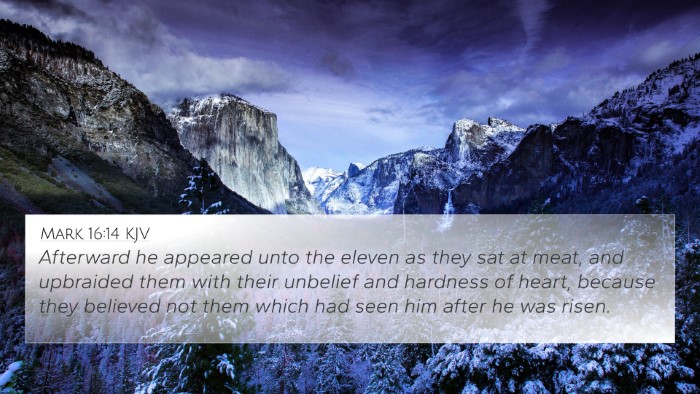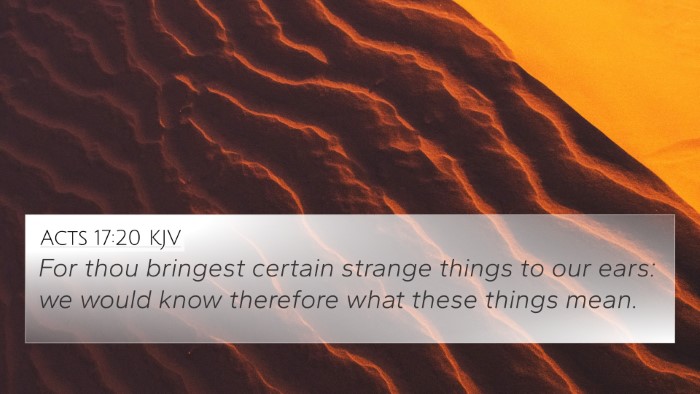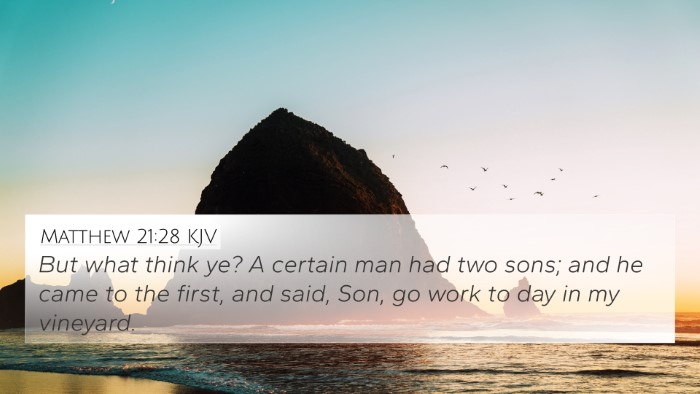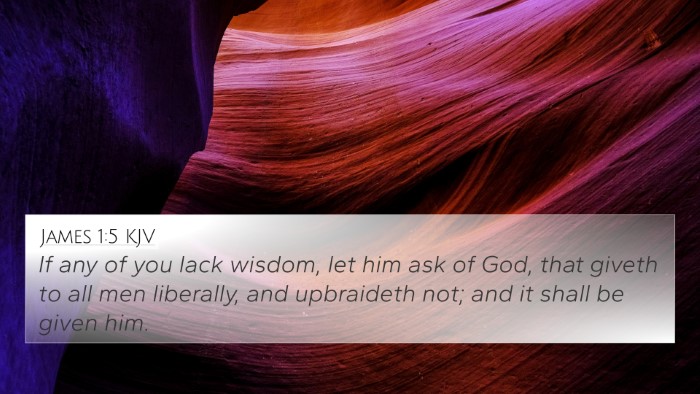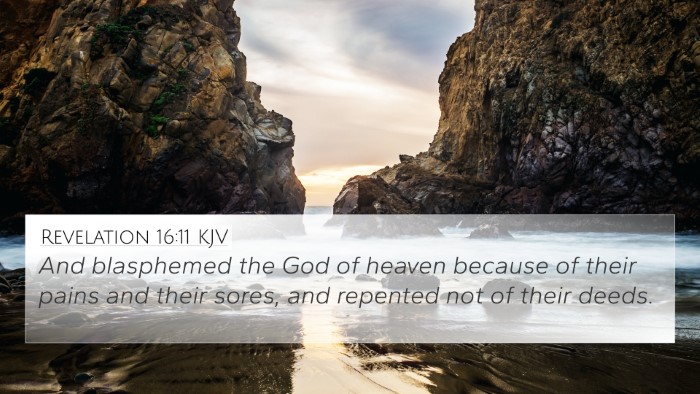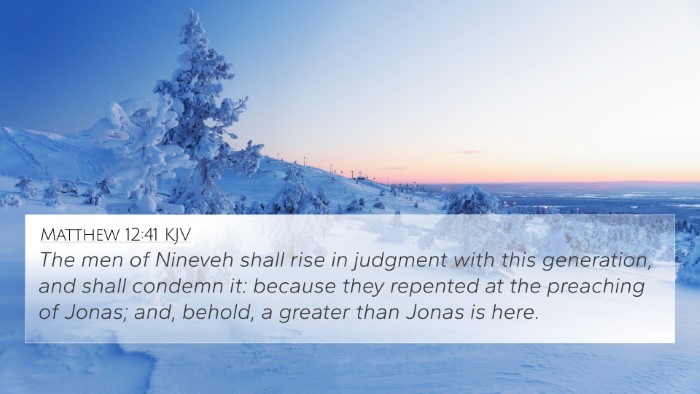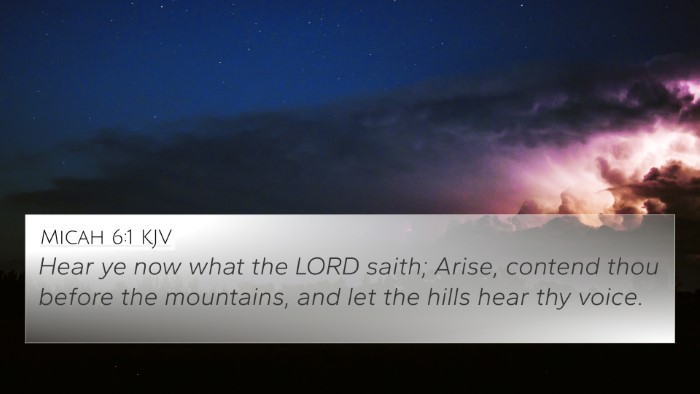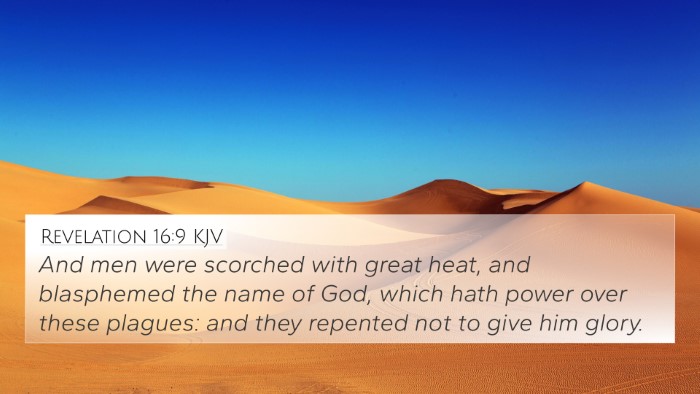Understanding Matthew 11:20
Verse: "Then began he to upbraid the cities wherein most of his mighty works were done, because they repented not." (Matthew 11:20)
Contextual Overview
This passage signifies a crucial moment in Jesus' ministry, where He expresses disappointment towards cities that witnessed His miraculous deeds yet failed to repent. The term "upbraid" implies a rebuke or strong disapproval, highlighting the gravity of their unrepentant hearts despite witnessing divine power.
Key Themes and Insights
- Repentance: The expectation of repentance comes into focus here, as witnessing miraculous acts should inspire a transformation of heart and intent.
- Accountability: Jesus holds the people accountable for their response to His works, illustrating the theological principle that greater revelation brings greater responsibility.
- Judgment: The rebuke serves as a precursor to judgment for those who reject God’s grace after experiencing His splendor first-hand.
Commentary Insights
Matthew Henry:
Henry points out that the cities Jesus rebuked were privileged to see many miracles and yet remained unchanged. This refusal to repent demonstrates a profound disregard for God’s justice and mercy. He contends that such cities are more guilty due to their exposure to divine activity.
Albert Barnes:
Barnes interprets Jesus’s frustration as a call to accountability, emphasizing that knowledge of God’s power and works should lead to sincere repentance. He connects this verse to the wider theme of the rejection of Christ's ministry and the implications of this rejection on the spiritual state of the cities involved.
Adam Clarke:
Clarke highlights the direct relationship between witnessing God’s might and the necessity of responding with repentance. He points out that cities like Chorazin and Bethsaida had ample opportunity for faith, and their lack of response sets a warning for future generations that might also see great works and remain indifferent.
Bible Cross-References
This verse connects with several other Scriptures that explore themes of repentance, accountability, and the consequences of disregarding God’s call:
- Luke 10:13: "Woe unto thee, Chorazin! woe unto thee, Bethsaida! for if the mighty works had been done in Tyre and Sidon, which have been done in you, they had a great while ago repented sitting in sackcloth and ashes."
- Matthew 12:41: "The men of Nineveh shall rise in judgment with this generation, and shall condemn it; because they repented at the preaching of Jonas; and, behold, a greater than Jonas is here."
- John 15:22: "If I had not come and spoken unto them, they had not had sin: but now they have no cloak for their sin."
- Hebrews 10:26-27: Illustrates the consequences of willful sin after receiving the knowledge of the truth.
- Revelation 2:5: A call to remember and repent, echoing the urgency found in Jesus' rebuke.
- Mark 6:11: Jesus speaks of shaking off dust as a testimony against those who do not listen.
- Acts 17:30: Paul states that God commands all men everywhere to repent, emphasizing the global call to repentance.
Connections Between Bible Verses
The rebuke in Matthew 11:20 resonates deeply with the broader narrative of Scripture concerning repentance and disbelief:
- Old Testament Context: Similar themes of accountability can be found in the prophetic books such as Ezekiel (Ezekiel 18:30).
- New Testament Teachings: The teachings of Paul in Romans 2:4 emphasize God's kindness leading to repentance.
- Comparative Study: Linking this moment to Jesus’s discourse in Matthew 23 sharpens the understanding of His lament over Jerusalem.
Thematic Bible Verse Connections
This verse not only highlights immediate issues of unrepentance but also sets up a larger biblical discourse on the nature of faith, grace, and judgment:
- Judgment and Grace: Echoed throughout John 3:19-21 where light has come into the world, but people loved darkness.
- Personal and Corporate Responsibility: Foundational themes in 2 Chronicles 7:14, where recognition of sin leads to corporate repentance and healing.
Conclusion
Matthew 11:20 serves as a powerful reminder of the expectations of God for those who experience His power. The observations from esteemed commentators enrich our understanding of the text by emphasizing the necessity of repentance and the heavy burden of accountability that comes with witnessing God’s miraculous works. The cross-references provided deepen this understanding, illustrating the interconnectedness of the biblical narrative surrounding faith, repentance, and divine judgment.
